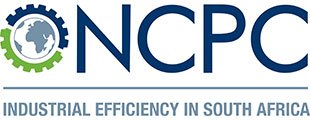The National Cleaner Production Centre South Africa (NCPC-SA) will host a conference aimed at growing greener industries at the Council for Scientific and Industrial Research’s (CSIR’s) convention centre on September 10 and 11 and at no cost to businesses and industries.
The fourth Industrial Efficiency Conference will include local and international expert speakers, and provide advice, case studies and guidelines on achieving low-carbon, greener operations through resource efficiency and cleaner production (RECP).
The conference will also have a session dedicated to improving the efficiencies of the foundry sector hosted by fellow industry support programme the National Foundry Technology Network (NFTN).
The conference is aimed at educating and equipping businesses to adopt a cleaner, more efficient model and for government representatives to integrate RECP programmes into their policies and strategies, says NCPC-SA and NFTN director Ndivhuho Raphulu.
Sessions will be a mix of technical presentations and panel discussions with relevant stakeholders. An exhibition area will host organisations that can assist industry, including sector associations, finance institutions, government departments and support organisations.
This year’s event will cover the latest developments and have two themes – smart systems and driving a change in consumer behaviour.
“The first theme can be loosely described as RECP in the digital economy. Topics such as smart energy solutions, smart factories and digital platforms for eco-innovation will emphasise how the Fourth Industrial Revolution and the move to digitised solutions should enhance the ability of industries to become more resource-efficient and better manage their footprint,” explains conference project leader and NCPC-SA communications manager Julie Wells.
The second theme is driving a change in consumer behaviour along the supply chain to the end-user. This will be achieved by showcasing case studies from companies who have implemented RECP in their plants and facilities.
“The purpose of the companies that implement these improvements is to manufacture or sell products more efficiently. The CSIR and the Department of Trade, Industry and Competition (DTIC) aim to support businesses of all sizes to innovate, grow and ensure a thriving, sustainable economy,” she says.
“By demonstrating the impact of RECP on companies, and by linking the case study to the products produced by those companies, we help create more responsible consumers.”
The NCPC-SA Industrial Efficiency Conference will be relevant for industrial company representatives in production and management; senior representatives of government agencies and departments; energy, water and environmental consultants; post-graduate students (engineering and environmental sciences); and green economy partners.
RECP is championed nationally by the NCPC-SA and includes various green economy practices, which, when applied to facilities, processes and products, help to make existing operations leaner and greener.
The NCPC-SA supports industrial energy efficiency measures including transitioning to renewable energy; water efficiency; industrial symbiosis; materials efficiency and waste minimisation; product life-cycle management; carbon tax; government incentives to support RECP; and green skills development – all topics that will be covered during the conference.
“The NCPC-SA conference is a platform that equips industry and showcases best practice in South Africa’s green economy. The conference is hosted in a different province every two years, allowing us to reach companies across the country,” says Raphulu.



